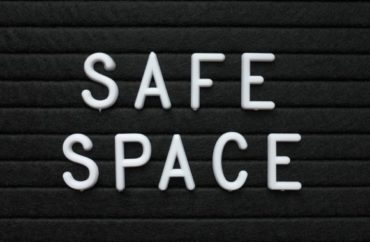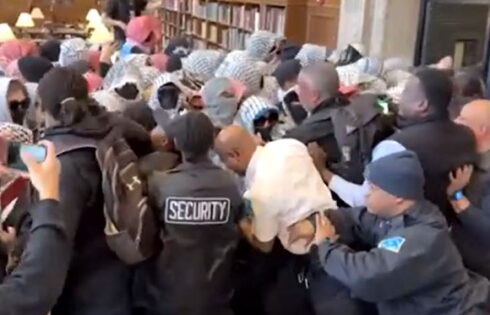
How to fight the ‘untruths’ at the heart of the campus crisis
In their new book “The Coddling of the American Mind: How Good Intentions and Bad Ideas are Setting up a Generation for Failure,” Jonathan Haidt and Greg Lukianoff have made an important contribution to our discourse on higher education. The book — which argues that overprotective parenting, an overabundance of screen time, and the campus nanny state have greatly contributed to the perfect storm of crybullies on Americans campuses today — is a must-read for parents about to send children to college.
The book weaves together a thorough and compelling explanation of the recent turmoil and intellectual crises on campus, and offers comprehensive suggestions for solving the problem—ideas as simple as letting children play alone in the neighborhood and giving them a chance to take small risks.
Lukianoff, a lawyer and president of the Foundation for Individual Rights in Education, has dedicated his career to fighting for free speech on college campuses. Haidt, a social psychologist at New York University, has been a sharp critic of growing anti-intellectual trends on campus. Haidt co-founded Heterodox Academy, a group of open-minded scholars who argue for intellectual diversity and academic freedom, to try and reverse those trends.
The two have come together to convince their colleagues that it’s time to stop discounting the problems on college campuses and enact solutions.
Three great ‘untruths’
At the center of the book’s thesis is the idea that young people are being taught, from early childhood through college, to embrace three fundamental untruths: That they are fragile; that they ought to trust their emotions absolutely; and that the world is composed merely of good people and evil people.
Along with the rise of these untruths, the authors say, has come a culture of “safetyism.” In order to accommodate students who arrive on campus believing that ideas can harm them, campus administrators have expanded the definition of “safety” to include emotional comfort. In so doing, the authors claim, the universities are violating their duty to pursue truth, and damaging both their students and the university itself by reinforcing the untruths.
Mark your calendars: @glukianoff and @JonHaidt are going on tour for their new book, The Coddling of the American Mind! More info about the events here: https://t.co/vjKB26inCt pic.twitter.com/ntwFIz1rzI
— Penguin Press (@penguinpress) August 30, 2018
An excellent diagnosis
Drawing on the work of developmental psychologist Peter Gray, and “America’s Worst Mom” Lenore Skenazy, the authors explain that the rise of paranoid parenting, and the decline of free play, have simultaneously convinced children that they are in constant danger while preventing them from experiencing the countless petty risks and disputes that children encounter during free play. As a result, they claim, young people are being inculcated with the untruth that they are fragile.
Pointing to psychologist Jean Twenge’s book “iGen,” the authors argue that teenagers are arriving on campus with much higher rates of anxiety than their predecessors, and that the problem is linked to screen time, especially time spent interacting with social media.
As more anxious students have arrived on campus, the authors claim, they have voiced more demands for the university to comfort them. This, in turn, has contributed to the rise of safetyism: “Colleges were struggling to cope with with rapidly rising numbers of students who were arriving with mental illness. … The new culture of safetyism can be understood in part as an effort by some students, faculty, and administrators to remake campus in response to this new trend.”
Solutions
Not content to leave readers hanging with a list of problems and their causes, Haidt and Lukianoff provide a series of potential solutions. Like the causes, these begin with early childhood and proceed all the way through college.
To combat the damage that overprotective parenting and lack of free play has done, the authors suggest several simple steps, including letting children walk to the store by themselves, and allowing time for them to engage in small risks.
As for “safetyism” in primary and secondary schools, the authors recommend that parents push back if they see the word “safety” used to address something other than physical harm, and insist that students be given more minimally supervised recess time.
And to push against the spread of the “three untruths” in college, they recommend that universities adopt the University of Chicago statement on free expression and eliminate speech codes, and take steps to prevent use of the heckler’s veto.
The two end on an optimistic note: “As far as we can tell from private conversations, most university presidents reject the culture of safetyism…From our conversations with students, we believe that most high school and college students despise call-out culture and would prefer to be at a school that had little of it.” As a consequence, they predict, a few colleges will break free from safetyism, and see their enrollment and donations soar.
Right-wing agitation?
One area of concern in “The Coddling of the American Mind” is on the subject of politics.
Both authors admit they are liberal, and the book appears directed toward members of the left who may have discounted the problems on college campuses. With that, they may well have provided a justification for all the actions they deplore, while leaving right-leaning readers feeling somewhat alienated.
The authors argue the Right feeds the polarization cycle by taking campus events out of context and amplifying them, thereby triggering threats and harassment from extremists: “The rising political polarization in the United States, where universities are increasingly seen as bastions of the left, has led to an increase in hostility and harassment from some right-leaning individuals and groups.”
A skeptical reader may reach the conclusion that a real cause behind the “coddling” problem is right-wing agitation, and a conservative reader might feel frustrated to be blamed for it.
Ultimately, however, “The Coddling of the American Mind” shows that Americans of all stripes can learn to correct the faults in how Americans raise the youth, and thereby a great many problems may be solved, not least of which would be violent protests and intellectual homogeneity on campus.
MORE: New campus culture: The limiting of the human mind
MORE: Professor explains rise of ‘precious snowflakes’ – cites narcissism, over-nurturing
IMAGE: Thinglass / Shutterstock.com
Like The College Fix on Facebook / Follow us on Twitter






Please join the conversation about our stories on Facebook, Twitter, Instagram, Reddit, MeWe, Rumble, Gab, Minds and Gettr.